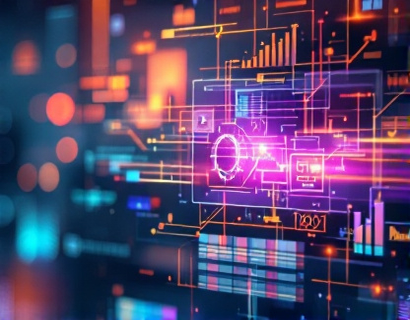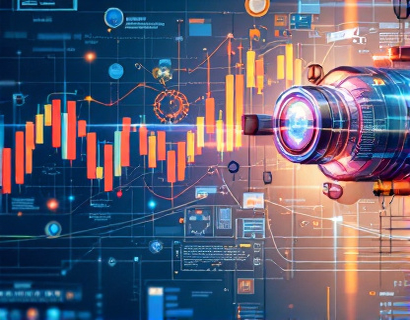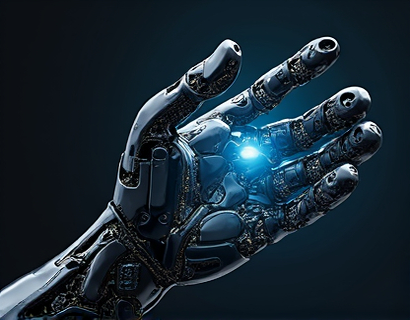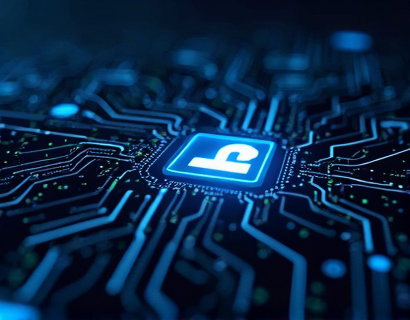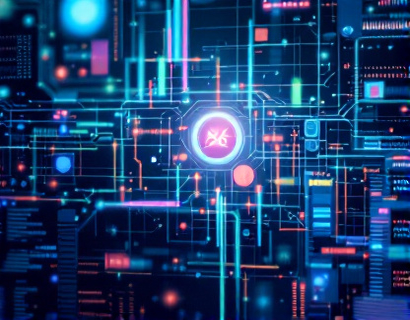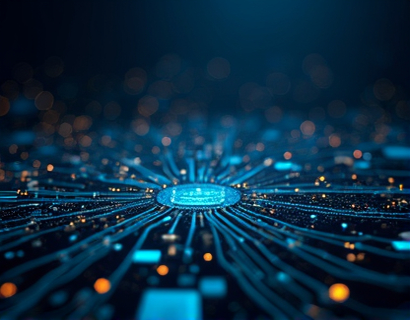Unlocking Enhanced Digital Experiences: Harnessing the Power of Crypto and AI for Innovative Ucosystem Solutions
The digital landscape is undergoing a profound transformation, driven by the convergent powers of blockchain technology and artificial intelligence. This integration is not just a technological advancement but a paradigm shift that promises to redefine how we interact with digital services and platforms. For tech enthusiasts and professionals, understanding the synergy between crypto and AI is crucial for navigating and leveraging the next wave of digital innovation. This article delves into the transformative integration of these technologies, focusing on enhanced security, personalization, and engagement, providing valuable insights for those keen on the intersection of cryptocurrency and artificial intelligence.
The foundation of this transformation lies in the unique properties of blockchain technology. Blockchain, at its core, is a decentralized ledger that ensures transparency, immutability, and security. These attributes are invaluable in the digital realm where data breaches and fraud are persistent concerns. By utilizing blockchain, digital platforms can offer a higher level of security, ensuring that user data and transactions are protected from unauthorized access and tampering. This enhanced security is not just a feature but a fundamental aspect that builds trust and confidence among users.
One of the most significant applications of blockchain in digital experiences is in identity verification and management. Traditional identity systems are centralized, making them vulnerable to hacks and breaches. Blockchain-based identity solutions, on the other hand, allow users to control their own identities, providing a decentralized and secure method for authentication. This not only enhances security but also empowers users by giving them ownership over their personal data. For instance, a user can choose to share specific identity attributes with a service provider without revealing unnecessary information, thus maintaining privacy and control.
AI, with its ability to process and analyze vast amounts of data, complements blockchain's security features by enabling sophisticated personalization and engagement strategies. Machine learning algorithms can analyze user behavior, preferences, and patterns to deliver tailored experiences. This level of personalization goes beyond basic recommendations, creating a more intuitive and seamless interaction with digital services. For example, an AI-driven recommendation system can adapt in real-time based on user interactions, providing content that is highly relevant and engaging.
Enhanced personalization also extends to user interfaces and experiences. AI can optimize the design and layout of digital platforms to suit individual user preferences and behaviors. This adaptive approach ensures that users have a customized experience that aligns with their needs and habits, increasing satisfaction and retention. Moreover, AI-powered chatbots and virtual assistants can provide instant support and guidance, further enhancing the user experience by offering timely and accurate assistance.
The integration of blockchain and AI is not limited to backend processes; it also revolutionizes the way businesses model their revenue streams and engage with their audiences. Decentralized finance (DeFi) platforms, for instance, leverage blockchain to offer financial services without intermediaries, while AI can optimize these services by predicting market trends and automating trading strategies. This combination not only democratizes access to financial tools but also enhances the efficiency and accuracy of financial decision-making.
In the realm of content creation and distribution, blockchain and AI are transforming the way creators produce and monetize their work. Blockchain-based platforms can ensure that content creators receive fair compensation for their work, as transactions are transparent and tamper-proof. AI can further enhance this by analyzing content performance, providing insights into what resonates with audiences, and suggesting strategies for improvement. This data-driven approach helps creators refine their content and reach a broader audience, fostering a more vibrant and sustainable creative ecosystem.
Another critical area where blockchain and AI intersect is in data privacy and consent management. With the increasing concern over data privacy, users are demanding greater control over their personal information. Blockchain-based solutions can provide a framework for users to manage their data consent in a transparent and secure manner. AI can assist by analyzing user preferences and automating the consent process, ensuring that users' choices are respected and enforced. This not only enhances user trust but also complies with stringent data protection regulations.
The convergence of blockchain and AI also opens up new possibilities for secure and decentralized cloud computing. Traditional cloud services rely on centralized servers, which can be targets for cyberattacks. Blockchain-based cloud solutions distribute data across a network of nodes, making it extremely difficult for attackers to compromise the system. AI can optimize resource allocation and performance, ensuring that users enjoy fast and reliable cloud services while maintaining high levels of security. This hybrid approach combines the benefits of decentralization and intelligence, creating a robust and efficient computing environment.
In the context of IoT (Internet of Things), blockchain and AI play pivotal roles in ensuring the security and interoperability of connected devices. Blockchain can secure device communications and data transactions, preventing unauthorized access and ensuring data integrity. AI can analyze the vast streams of data generated by IoT devices, identifying patterns and anomalies to enhance system performance and security. For instance, AI-driven anomaly detection can proactively identify potential security threats, allowing for immediate action to be taken.
The healthcare sector is another area where the integration of blockchain and AI is making a significant impact. Blockchain can secure patient data, ensuring privacy and compliance with regulations like HIPAA. AI can analyze medical data to provide insights for diagnosis and treatment, improving patient outcomes. For example, AI algorithms can predict disease outbreaks by analyzing patient data and environmental factors, enabling proactive healthcare measures. Blockchain ensures that this data is securely shared among healthcare providers, enhancing collaboration and care coordination.
In the world of gaming, blockchain and AI are creating immersive and fair gaming experiences. Blockchain can ensure that in-game assets and transactions are secure and verifiable, preventing cheating and fraud. AI can enhance gameplay by creating dynamic and adaptive environments that respond to player actions, providing a more engaging and personalized experience. NFTs (Non-Fungible Tokens) powered by blockchain can represent unique in-game items, giving players true ownership and the ability to trade these assets outside the game ecosystem.
To fully harness the potential of blockchain and AI, it is essential to address the technical and practical challenges involved. Scalability remains a significant issue for blockchain, as many networks struggle to process a high volume of transactions efficiently. However, advancements in layer 2 solutions and consensus mechanisms are addressing these concerns, making blockchain more scalable and practical for widespread use. On the AI front, ensuring ethical and responsible use of algorithms is crucial to avoid biases and maintain trust. Continuous research and development in both fields are necessary to overcome these hurdles and realize the full potential of their integration.
For tech enthusiasts and professionals looking to explore the intersection of blockchain and AI, there are several resources and communities to consider. Online platforms like GitHub and ResearchGate offer access to open-source projects and academic papers, providing valuable insights and collaborative opportunities. Conferences and meetups focused on blockchain and AI, such as the Blockchain Developers Conference and the AI Summit, offer platforms to learn from experts and network with peers. Additionally, online courses and tutorials on platforms like Coursera and edX can help build a solid foundation in these cutting-edge technologies.
In conclusion, the integration of blockchain and AI is paving the way for a new era of digital experiences characterized by enhanced security, personalization, and engagement. As these technologies continue to evolve, their applications will expand, transforming various industries and aspects of our digital lives. For those eager to stay ahead of the curve, embracing the synergy between blockchain and AI is not just an option but a necessity in the rapidly changing tech landscape.











